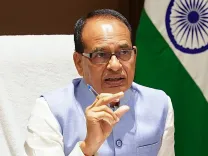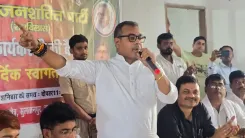Will the DMK-led SPA's Protest in Tirupur Demand Action Against the Textile Crisis?

Synopsis
Key Takeaways
- Protest Date: September 2 in Tirupur
- Key Issue: U.S. tariffs impacting textile exports
- SPA's Demands: Immediate relief measures from the government
- Job Threat: 30 lakh workers at risk
- Government Engagement: Need for negotiations with the U.S.
Chennai, Aug 30 (NationPress) The Secular Progressive Alliance (SPA) has declared plans for a significant protest in Tirupur on September 2, criticizing the Union government for its inaction regarding the escalating crisis in Tamil Nadu's textile sector due to severe U.S. tariffs.
Leaders from the alliance, including DMK General Secretary Duraimurugan, pointed out that the abrupt tariff increase has resulted in considerable harm to Tirupur’s knitwear industry, which plays a crucial role in India's textile exports.
The SPA reported that exports approaching ₹3,000 crore are at risk, jeopardizing the livelihoods of countless workers.
“Approximately 30 lakh workers face the threat of unemployment. The entire sector, which supports over 75 lakh people across Tamil Nadu, now confronts a dire situation,” the SPA leaders stated in a joint declaration.
The alliance reminded that Chief Minister M.K. Stalin has consistently pleaded with Prime Minister Narendra Modi for intervention.
On August 16, CM Stalin initially reached out to the Prime Minister, warning him about the looming crisis and demanding prompt action.
He reiterated his request on August 28, but the Centre “remains unresponsive like a stone thrown into a well,” the statement asserted.
The SPA leaders accused the BJP-led Union government of ignoring the struggles of small and medium exporters.
They further claimed that the Centre's silence is akin to supporting “the designs of the U.S. to undermine Tirupur’s textile exports.”
Emphasizing the seriousness of the situation, the alliance warned that without immediate aid, the ripple effects could severely impact Tamil Nadu’s economy, which relies heavily on the textile industry for jobs and revenue.
The SPA is calling for urgent relief measures, including tax breaks, subsidies for exporters, and comprehensive support packages to protect both businesses and workers.
The alliance has also urged the Union government to engage with the U.S. administration to negotiate a relaxation of the tariffs and defend India’s textile sector.
The protest in Tirupur on September 2 is anticipated to draw thousands of workers, trade union members, and political supporters, highlighting the urgency of the issue.
aal/rad






